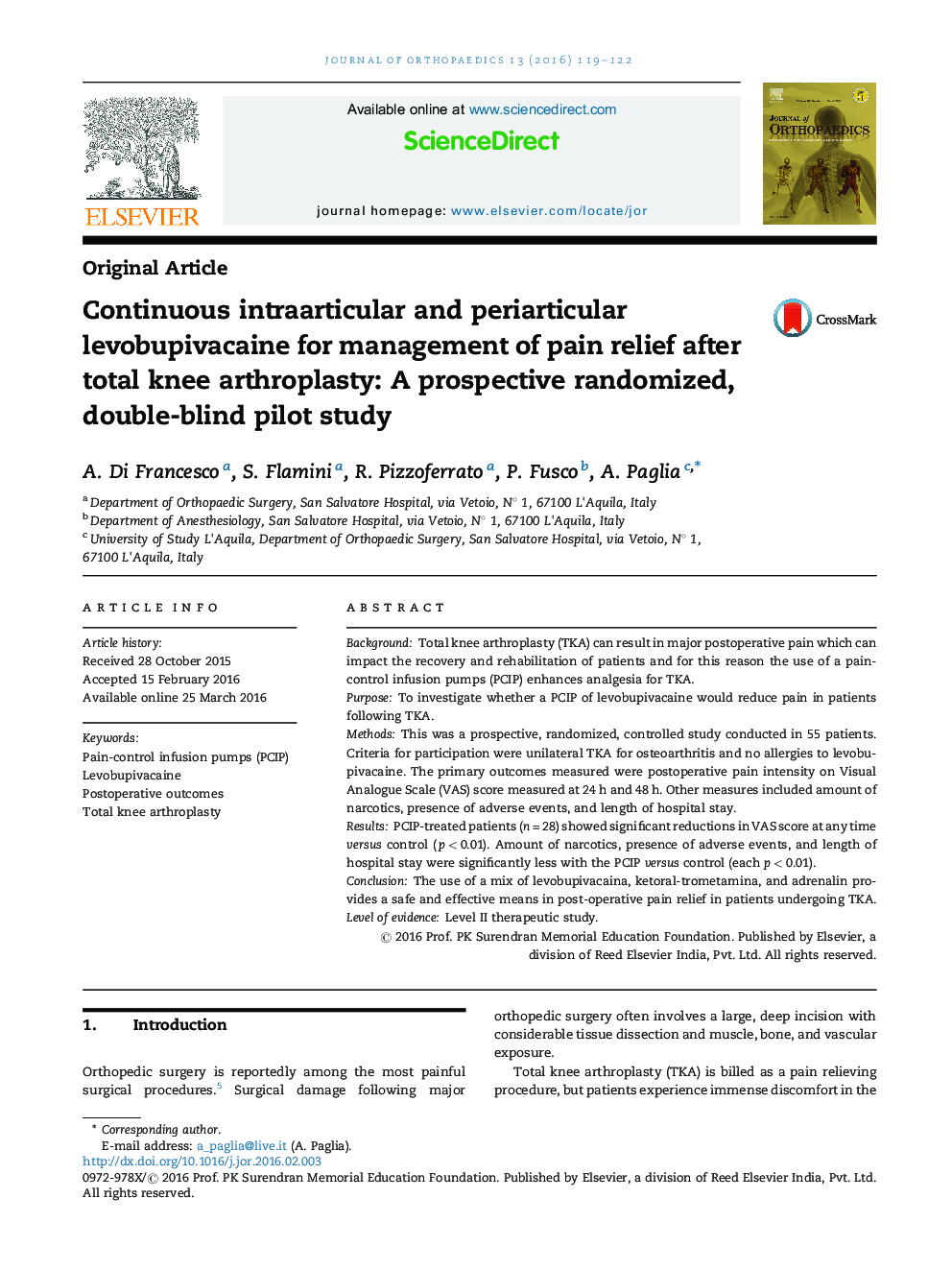| Article ID | Journal | Published Year | Pages | File Type |
|---|---|---|---|---|
| 3251739 | Journal of Orthopaedics | 2016 | 4 Pages |
BackgroundTotal knee arthroplasty (TKA) can result in major postoperative pain which can impact the recovery and rehabilitation of patients and for this reason the use of a pain-control infusion pumps (PCIP) enhances analgesia for TKA.PurposeTo investigate whether a PCIP of levobupivacaine would reduce pain in patients following TKA.MethodsThis was a prospective, randomized, controlled study conducted in 55 patients. Criteria for participation were unilateral TKA for osteoarthritis and no allergies to levobupivacaine. The primary outcomes measured were postoperative pain intensity on Visual Analogue Scale (VAS) score measured at 24 h and 48 h. Other measures included amount of narcotics, presence of adverse events, and length of hospital stay.ResultsPCIP-treated patients (n = 28) showed significant reductions in VAS score at any time versus control (p < 0.01). Amount of narcotics, presence of adverse events, and length of hospital stay were significantly less with the PCIP versus control (each p < 0.01).ConclusionThe use of a mix of levobupivacaina, ketoral-trometamina, and adrenalin provides a safe and effective means in post-operative pain relief in patients undergoing TKA.Level of evidenceLevel II therapeutic study.
